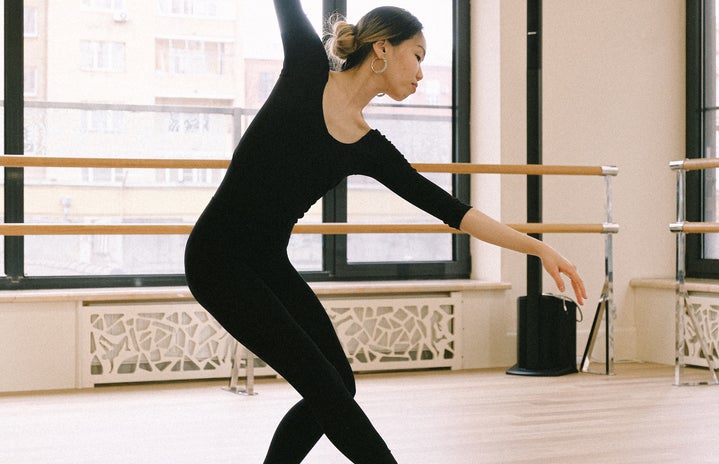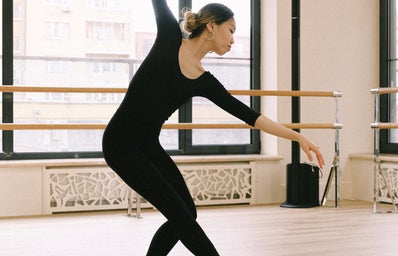While many little girls might dream of finally switching out their spot on the ballet barre for the role of a dance instructor, I have learned over this past semester that preparing for a live performance is much easier said than done. As a dance minor, I am required to take dance composition: a course dedicated towards learning how to choreograph a piece and how to take on a leadership role within the world of dance. Given my fifteen years of dance experience—ranging from mommy & me classes as a toddler to competing on the national level—I felt prepared and ready for the challenge of filling the shoes of the teachers who came before me. What I was not expecting, however, was the genuine life lessons that I would come to learn through serving as a peer role model and making the leap from student to instructor. So, in the span of just three short months, here is what I have learned:
- The Best Work is Spontaneous
Having grown up in the studio, I spent the early years of my life learning phrase after phrase of new choreography. After a while, when I thought I had exhausted about every existing style and every possible song to dance to, it always seemed that my teachers would just keep creating more! Naturally, my 10-year-old mind could not comprehend how new choreography was developed, as it seemed impossible to me that such impressive and well-thought-out movement could be conjured up within one sitting or even within a limited amount of time. Ultimately, what I failed to consider was that creativity comes when least expected—a realization that did not occur to me until I began choreographing myself. Just as the most astonishing discoveries are made unexpectedly and the most impressive accomplishments are achieved on a whim, great art is imagined during life’s mundane moments. When I first set out to create a piece of choreography, I designated a specific amount of time to coming up with ideas and staging the dancers by hand with a pencil and notebook; but, as I came to learn, creativity is not facilitated in the same way that academic work is produced through strict blocks of time and structured study sessions. Instead, I discovered that having an open mind and welcoming heart brought the most free-flowing and natural ideas my way!
- Past Knowledge Can Only Go So Far
As previously mentioned, my years upon years of dance training gave me the impression that I was set for success at the start of this semester. And, while, yes, I can acknowledge that I certainly was prepared for the job of choreographing, to a certain extent, there were also various bumps in the road that I had not accounted for, nor expected, previously. Put simply, stepping into the role of a dance teacher is comparable to moving from a pair of flat ballet shoes to pointe shoes—or taking a grande jeté into the future, for that matter. Even though my prior experience in dance technique, performing, and competing primed me to become a strong dancer myself, I came to realize that being capable of passing on that knowledge to others is a completely different endeavor. So, even though training on flat can prepare a dancer to move into pointe shoes, that dancer will not know what it feels like to dance on pointe until she finally steps up onto the box for the first time. That being said, my taking the leap from student to instructor enabled me to appreciate dance in a way I never thought possible before, as having the responsibility of leading my peers gave me the chance to experience being on the other side of the fourth wall, moving my position from the stage to the audience!
- Expect the Unexpected
Out of all the lessons I learned and experience I gained taking dance composition, the greatest challenge came on opening night when one of the dancers in my piece fell ill with a stomach bug; so, with one hour to spare before the curtain drew, I prepared myself to jump into my own piece and perform my own choreography in front of a sold out audience. While it is expected that a choreographer knows her own movement phrase and staging, it is a completely different experience to have that choreography embedded into muscle memory and ready to perform—something a choreographer is not necessarily expected to know. So, the moment the stage lights brightened and the nostalgic strum of Phoebe Bridgers’ Scott Street began, I knew that my experience having to step in was occurring to teach me a larger life lesson.
Whether you have danced all your life or have never entered a studio, the process of taking a leap is an experience that anyone can have, as the takeaways that may be gained from stepping into any sort of leadership position are vast and extensive. Just remember that no matter if your hair piece falls out or if your tap shoe laces become undone, the show must go on!


